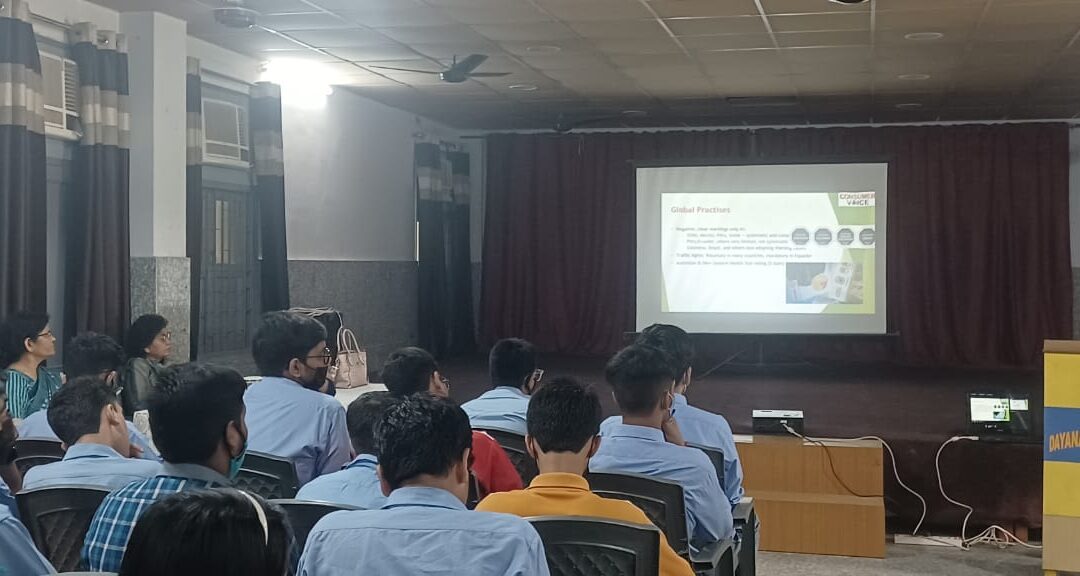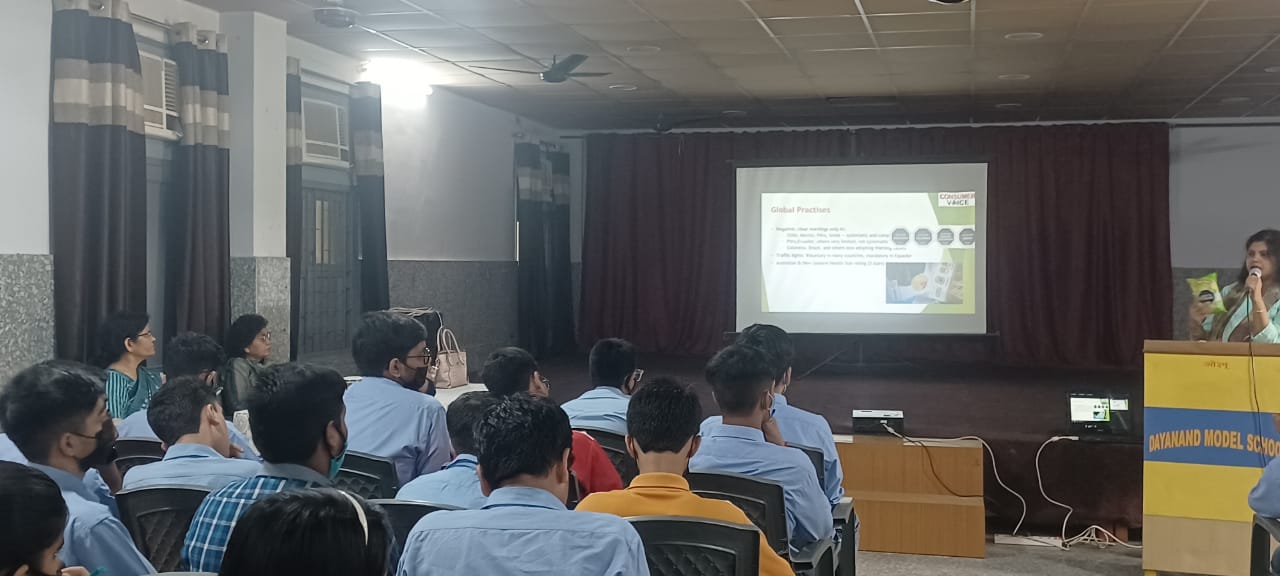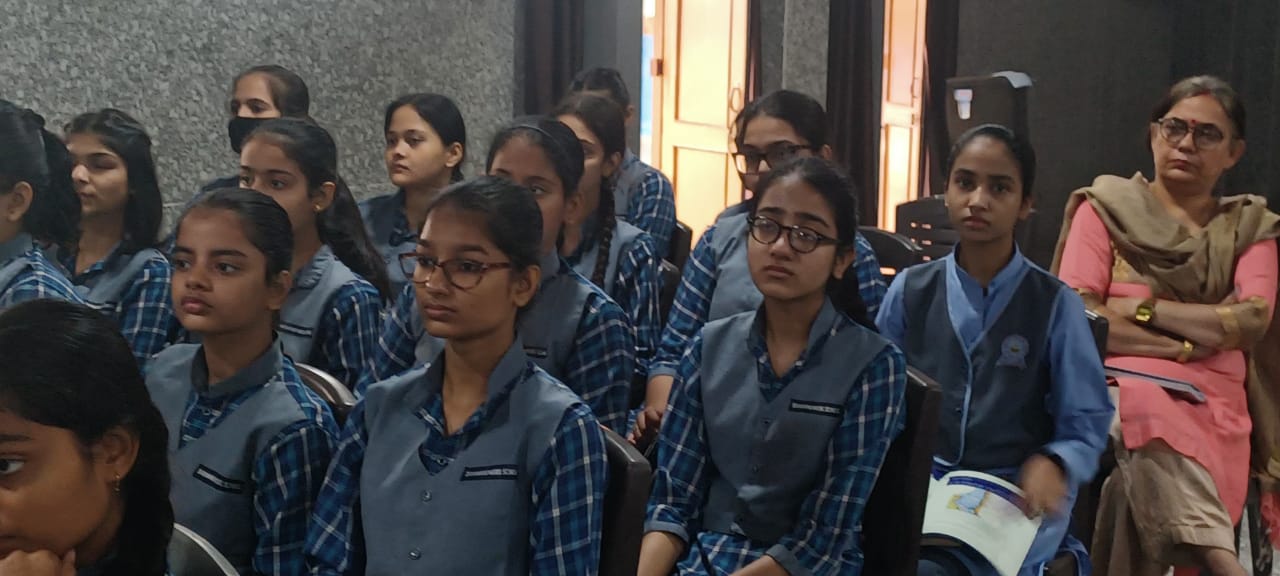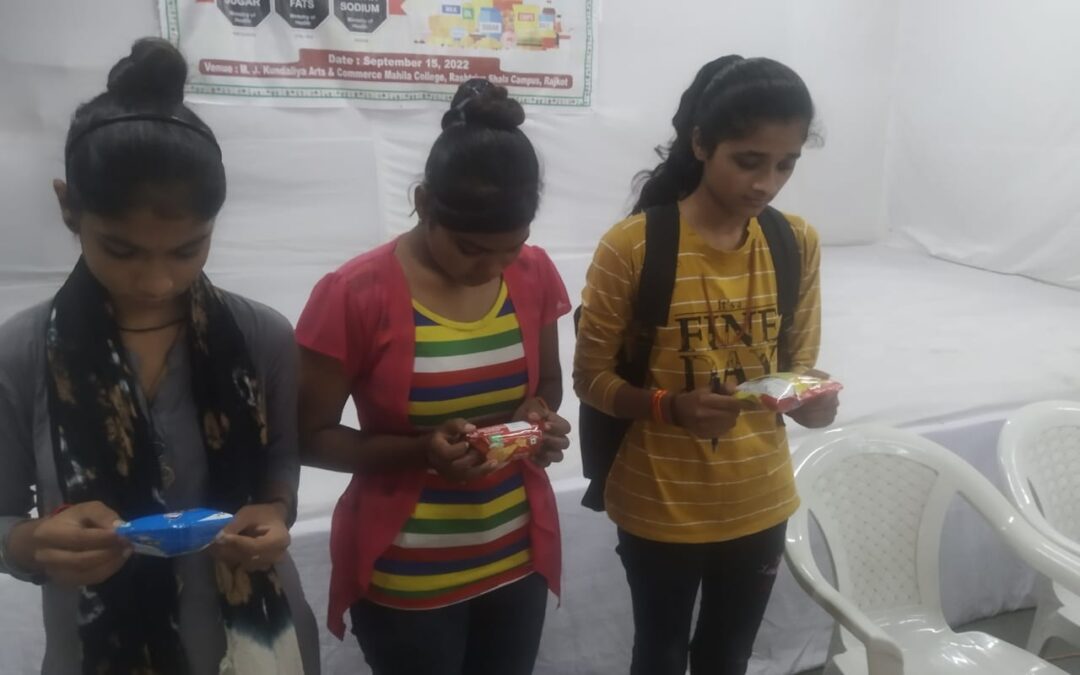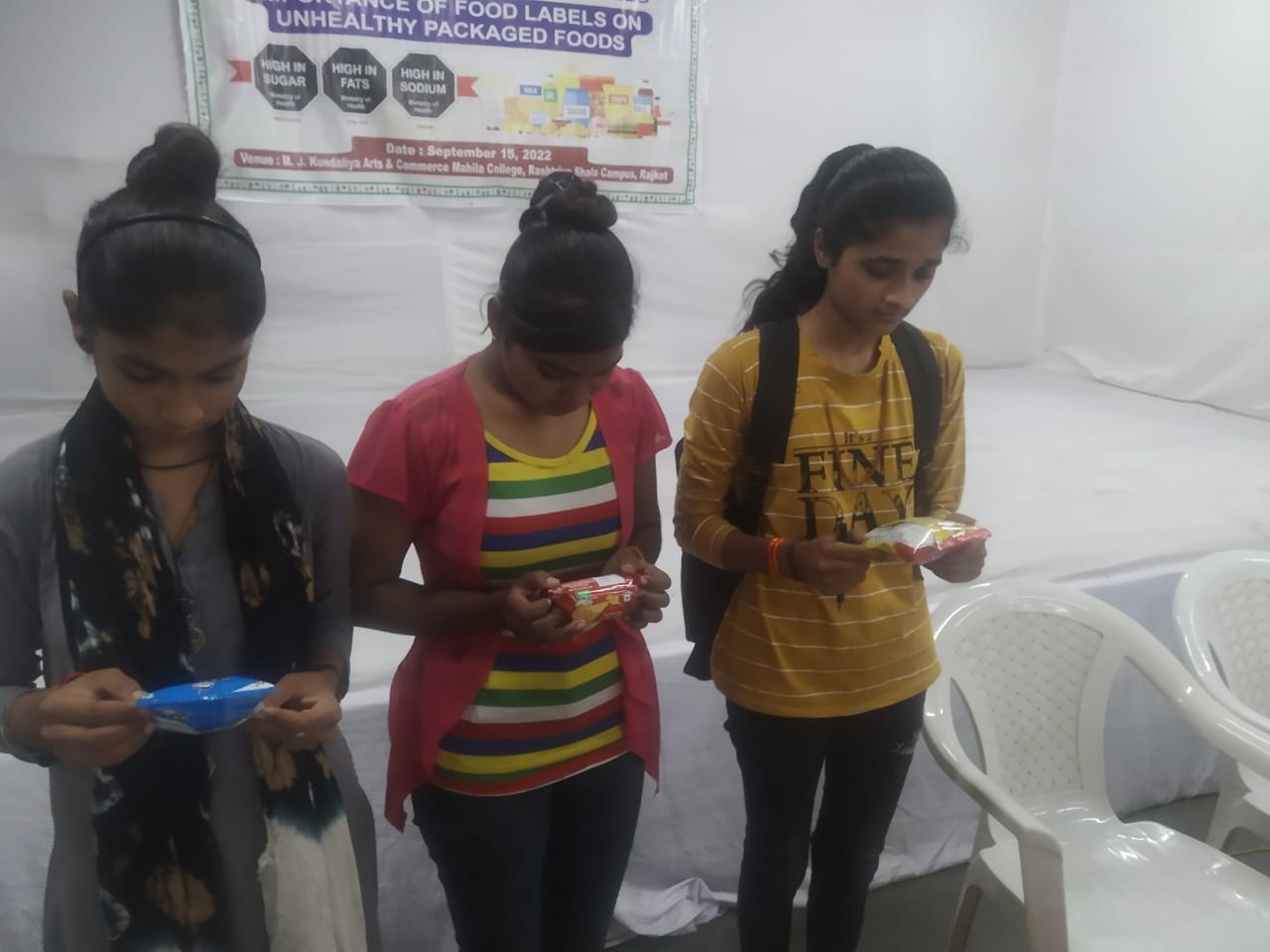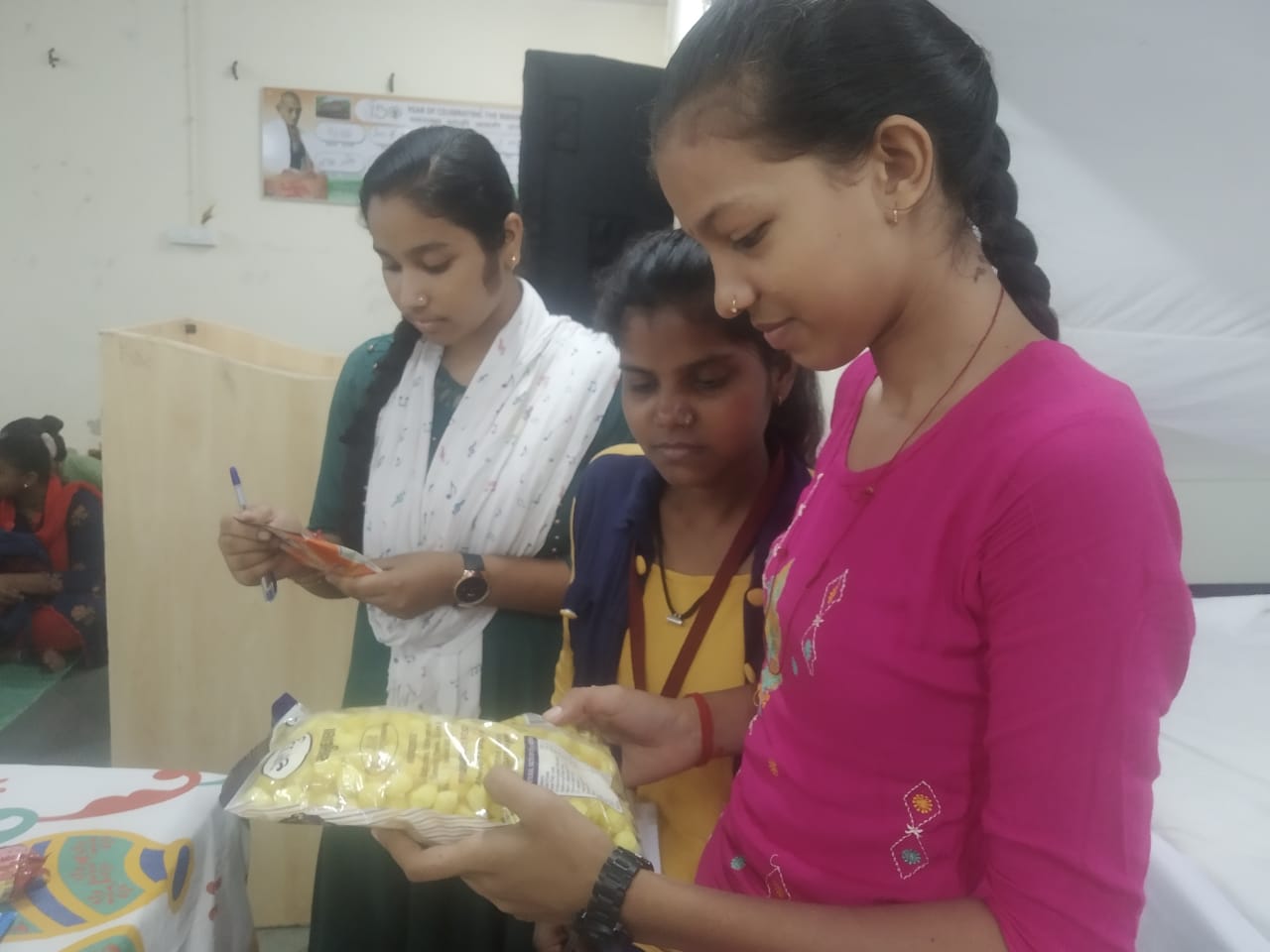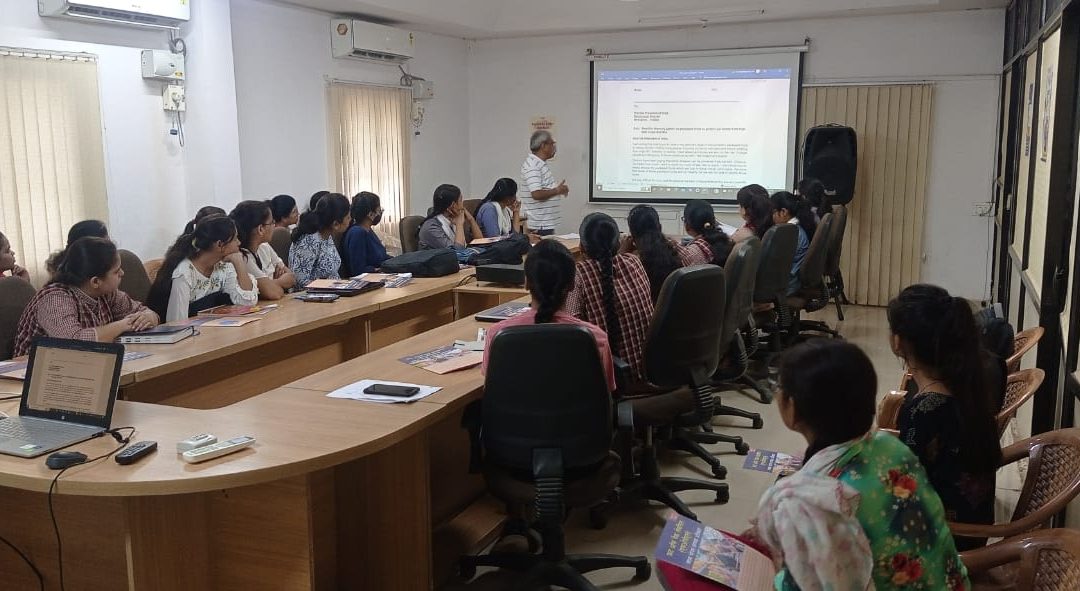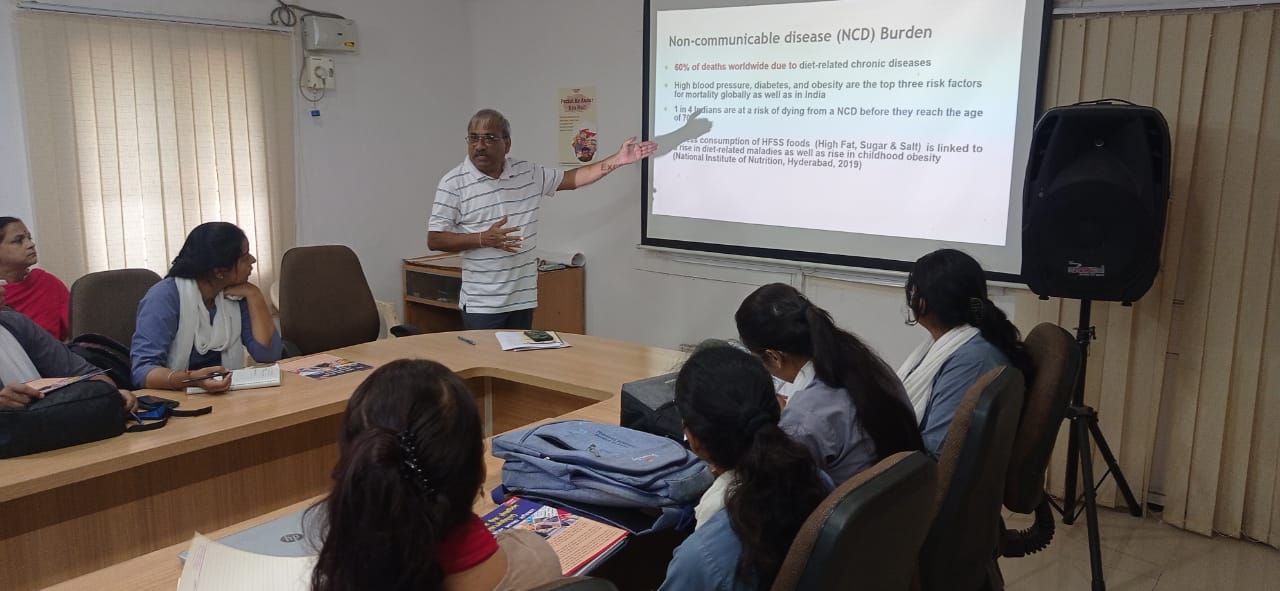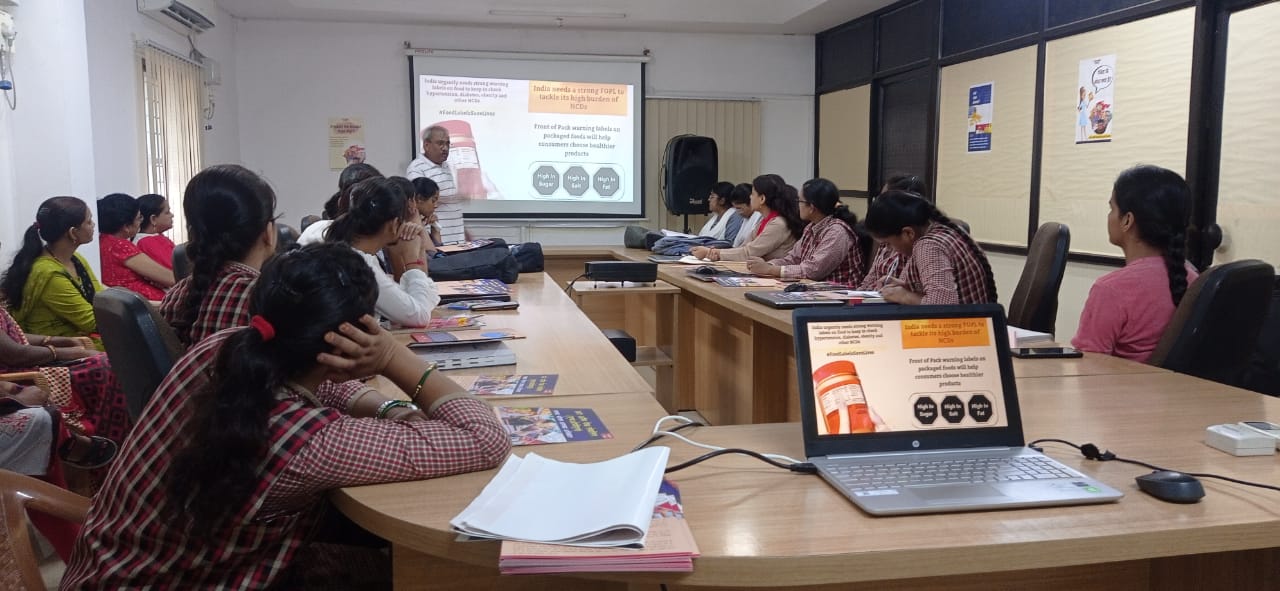The event was organised to sensitize and educate students about food safety and importance of food labels.
Students participated with enthusiasm and keen interest was shown by them in the subject matter. They were sensitized on how food labels can help them to make informed choices. The participants were also briefed on non-communicable diseases like obesity, diabetes, stroke and other cardiovascular diseases. Students were sensitized on how to read food labels correctly and how one should be careful while buying packaged foods. The food labels help one to identify foods which are high in calories, salt, sugar and fats.
The critical nutrients responsible for non-communicable diseases can be attributed to high consumption of salt, sugar and fats. Reading food labels correctly is crucial for making the right choice. Also as per research results reduction in consumption of High in Fat, Sugar and Salt (HFSS) foods has considerably reduced NCD burden.
During the workshop, the principal of the college also spoke about the need for embracing healthy eating habits among the students. The participants found the session very helpful and also pledged to read the food labels henceforth. Teaching staff also joined the workshop and shared their views.
They were briefed on the harmful critical nutrients of salt, sugar and fats in packaged foods and how non-communicable diseases are a result of high intake of some of these nutrients.
It is therefore important to read food labels carefully to help make the right choice. The need for Front of Pack Warning Labels and possible types were also discussed through a presentation by our partner organisation.
Experts told the audience how food labels are helpful to monitor salt and sugar intakes and to make healthier choices through eating a healthy diet. Consumers can also monitor calories, saturated fats and intake of micronutrients which are helpful in avoiding deficiencies like iron and Vitamin D.
More than 70 students participated in the program which highlighted the importance of food labels. To make them understand about food labels we organised a short demo through food labelling on various food and drinks products.
Students participated with enthusiasm and asked various queries during question –answer session. These queries were addressed by the experts.
